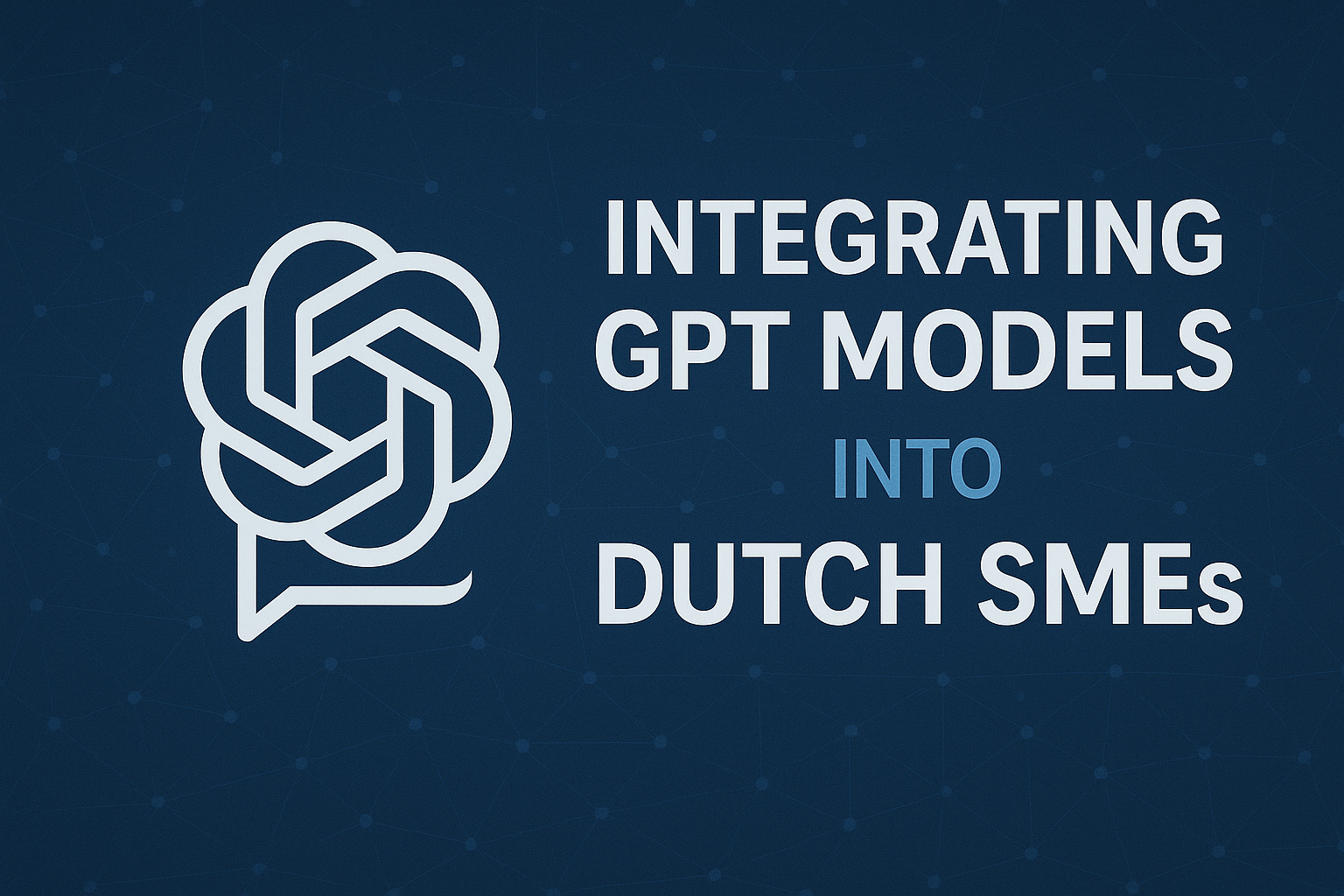Meta Title: Integrating GPT Models into Dutch SMEs: Unlocking Innovation and Operational Efficiency Meta Description: Discover how GPT technology can transform Dutch SMEs through real-world applications, compliance insights, and AI readiness. Learn about industry use cases, integration benefits, and strategic implementation with Dutch context.
Integrating GPT Models into Dutch SMEs: Benefits, Use-Cases & Compliance
(Integratie van GPT-modellen in Nederlandse MKB’s)
Small and medium-sized enterprises (MKB’s) represent 99 % of all Dutch firms, yet only 12 % actively deploy AI, compared with 40 % of large companies, according to Implement Consulting Group. GPT technology—Generative Pre-trained Transformers—offers a once-in-a-decade chance to close that gap, boosting efficiency, revenue and customer experience without enterprise-level budgets.
1. Why GPT Matters to the Dutch Economy
The same Implement study projects that widespread AI adoption could inject €45 billion into Dutch GDP by 2030. The multilingual nature of Dutch commerce—90 % of citizens speak English while valuing Dutch authenticity—makes language-flexible GPT models particularly valuable.
2. Government Funding Levels the Playing Field
Via the Nationaal Groeifonds, The Hague has earmarked €1.5 billion for SME AI projects, including GPT integration workshops and vouchers. Public-private initiatives such as the Nederlandse AI Coalitie pair SMEs with university labs specialising in large-language models.
3. Retail: AI-Generated Copy & Chat Commerce
Utrecht fashion e-tailer ModeMaatje embedded GPT-4 into its product-information system; Dutch- and English-ready blurbs plus a WhatsApp chat-bot lifted click-through by 35 % and reduced returns by 18 %—results shared in RetailTrends.
4. Logistics: Automated Docs & Dynamic FAQs
Tilburg logistics provider LogiFlow uses GPT to draft customs forms and translate dock instructions. In an interview with Nieuwsblad Transport, management reported a 40 % cut in daily admin hours and near-zero export errors, vital under post-Brexit rules.
5. Healthcare: Multilingual Patient Support
Amsterdam tele-health startup CareBotNL fine-tuned GPT on anonymised Dutch medical dialogs. The bot triages symptoms, writes EHR summaries and outputs treatment plans in Turkish, Arabic and Polish. A 2024 pilot with OLVG hospital saw unanswered patient queries drop 15 % (see ICT&health).
6. Legal & Professional Services
Boutique firms in The Hague use GPT to draft Dutch NDAs in minutes. The Dutch Bar Association’s February 2025 guideline confirms that AI-assisted drafting is permissible provided a lawyer reviews the final text—reinforcing human oversight, not replacement.
7. Customer Support & Multilingual Voice of the Customer
Transavia integrated GPT into its call-centre knowledge base; the airline told Emerce that average handle time for Dutch/German/English queries dropped 25 % while CSAT rose three points.
8. Compliance Lens: GDPR & Forthcoming EU AI Act
The Autoriteit Persoonsgegevens stresses data-minimisation and transparency for generative models (April 2025 advisory). Draft EU AI Act text classifies customer-service LLMs as “limited risk,” requiring clear disclosure and audit logs by 2026.
9. Talent: Prompt-Engineering & Creative Ops
Amsterdam’s Growth Tribe runs two-day prompt-engineering bootcamps; alumni report content production time halved. Rotterdam agency BrightWave posted a 44 % faster campaign cycle after up-skilling designers on GPT prompts.
10. Quick ROI Calculator
A 20-seat support team costs ~€800k/yr. GPT reduces live tickets 25 %, freeing three FTEs (€120k). Even after €18k in API + compliance costs, net savings hit €102k—an ROI of 5.6×.
Conclusion
GPT delivers Dutch SMEs a rare triple win: lower costs, higher revenue and happier customers. Success hinges on strategic integration and ethical alignment—embedding vertrouwen (trust) into every prompt.
Ready to explore your GPT edge?
Neem contact op via **encotiq ** voor een vrijblijvende sessie. Samen versterken we de innovatiekracht van het Nederlandse MKB.







